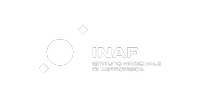SWIFF
Abstract: We address two fundamental issues in space weather: 1) development of a integrated framework for the physics modelling of space weather, 2) study of methods and software to address the linkage (coupling) between different physics and processes developing simultaneously or in cascade. We propose a plan that starts from the fundamental physics of the space weather processes and designs, first, mathematical models best suited to accurately represent such processes, proceeds to develop computational algorithms target to the models at hand and finally implements a common integrated software infrastructure to make space weather forecasting possible.
We organise our plan around a common multiphysics and multiscale work package, and 3 additional work packages designed to address the three main sources of linkages: the couplings at the Sun, in space and at the Earth. The main characteristic of our approach is to consider the physics first rather than the existing models. We will not piece together ill fitting existing pieces as one might be tempted to do. Instead, we will use the best knowledge available so far to design the best fitting model and software. We intend to take no shortcuts, we want to develop a sound and solid basis for space weather forecasting, to form the equivalent of what is now commonplace in regular meteorological models.
The proposing team covers all aspects of the evolution of space weather events from the Sun to the effects on the Earth and includes experts with proven track record in the business of making space weather forecasts. We have extensive experience in the supercomputing facilities needed for space weather forecasting possible. We have experts on software development, on space weather modelling. and on the observations needed to help design the models and to test the results in a rigorous verification and validation approach. Our teams cover also geographically diverse areas of Europe and both founding and recent members of the EU.
Dettagli tecnici:
- Struttura INAF: INAF-OA Torino
- Bando: SPA.2010.2.3-1
- Riferimento: 263340
- Inizio: 01/02/2011
- Durata: 36 mesi
- Coordinamento: K.U. Leuven (BE)

